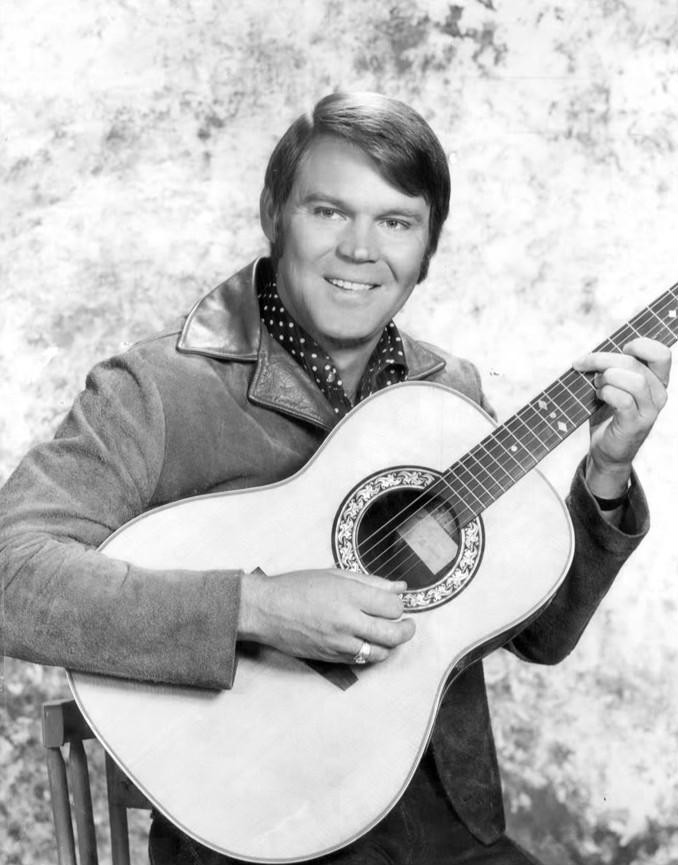I tend to be a conventional writer and thinker. Nevertheless, it’s fun to occasionally think outside the box and find ways to tie together different people, places and things. Here’s an example.
The first story involves singer and entertainer Glen Campbell, who passed away on Aug. 8. He had an incredible, 50-year career in music, television and film. He produced 60 studio, and seven live, albums and wrote hit songs, such as I’m Not Gonna Miss You and Rhinestone Cowboy. He hosted CBS’s Glen Campbell Goodtime Hour from 1969 to 1972, won six Grammy Awards and received an Oscar nomination in 2014 for best original song. He was also inducted into the Country Music Hall of Fame in 2005.
Yet, an unusual fact about Campbell’s life turned up after his death: he and his wife, Kimberly Woollen, both raised as Baptists, had switched to Messianic Judaism in the 1980s.
This was first revealed in a long-forgotten Reuters interview from 2008. The couple said they attended “the local synagogue every Saturday,” and celebrated “Jewish holidays, such as Passover, Rosh Hashanah and Chanukah, as well as Christmas.” It was also revealed that Woollen “cooks a mean brisket, but is still working on her matzah balls.”
This must surely have been a life-altering decision for Campbell, who admitted to Reuters reporter Dean Goodman that he’d once confused the word “menorah” with “manure.” Yet, he came to believe that, “It’s Jews who believe that Christ is the risen saviour. I think it will all come around to that.”
Of interest, the Jewish Journal’s Tess Cutler noted on Aug. 8 that the Campbells appeared in the 2012 documentary, Hava Nagila (The Movie), and performed “their own rendition of the Israeli folk song.”
Second, I received a copy of David Brog’s book, Reclaiming Israel’s History (with writer and editor Tiffany Gabbay’s kind assistance). Brog, who’s a cousin of former Israeli Prime Minister Ehud Barak, is the founding executive director of Christians United for Israel, a group that was started by evangelical pastor John Hagee in 2006.
READ: INVOKING HE WHO SHALL NOT BE NAMED (NOT VOLDEMORT)
In this intriguing historical account of the Arab-Israeli conflict, Brog tackles controversial topics and breaks down persistent myths.
The Roman Empire “attempted to sever the connection between the Jewish People and their land,” he writes, “by changing the country’s name from ‘Judea’ – the source of the words ‘Jews’ and ‘Judaism’ – to Palestina, or Palestine.” The Grand Mufti Amin al-Husseini’s ties with Nazi Germany are also explored in the book. Brog notes that, “Beyond merely seeking to extend Hitler’s Holocaust to the Middle East, Husseini may well have played a role in persuading Hitler to murder Europe’s Jews in the first place.”
Brog also believes “it is not anti-Semitic to criticize Israel,” but “it is anti-Semitic to criticize only Israel.” Both sides are imperfect, he says, but he recognizes that critics “singling out Jews for our common human failures” are wrong.
The most interesting sections of the book deal with Christian-Jewish history.
Jews and Muslims fought alongside each other during the Crusades “to defend their homes and their very lives,” he notes, but it was Jewish and Christian communities that “collapsed under the weight of Mamluk misrule.” This was the first time our society could “speak of Palestine as a Muslim country.”
Meanwhile, Brog points out that the statement, “a land without a people for a people without a land,” isn’t a “Zionist slogan,” but came from “Christian enthusiasts of a Jewish return to Palestine well before the birth of the modern Zionist movement.”
What ties these two unique stories together? In my opinion, it relates to the fascinating religious journeys some of us take. Campbell’s story was one of private conversion to another religion, whereas Brog’s story reveals the historical road many Christians and Jews have taken toward Zionism.
If you’re willing to think outside the box, you’ll see it.


